In general, there are four main blood types or blood groups – A, B, AB, and O – with both Rh negative and Rh positive variants for each group. However, this is just a very basic labeling of our blood types and each type has further subdivisions. There are an additional 61 known antigens in the Rh system which can create millions of possible blood types. Since it would be too much to delve that deep into all the actual blood types out there, this list focuses on the eight main blood types as well as the rarest blood type of them all, Rh-null.
O+
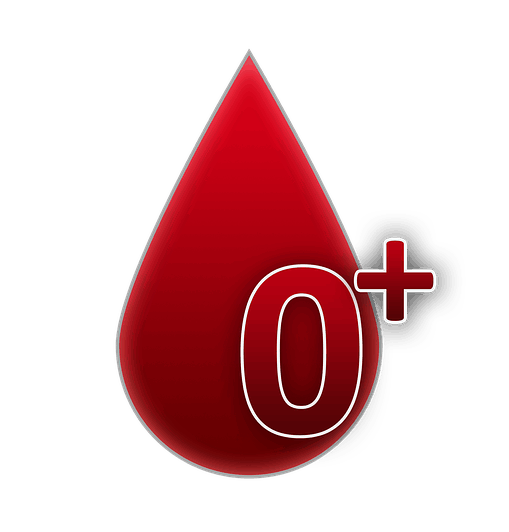
Distribution Among World Population: 38.67%
Can Donate T: O+; A+; B+; and AB+
Can Receive From: O+; and O-
Plasma Compatibility (Can Donate To): O
O+ blood is the most common blood type in the world and while it is not quite as universal as O- blood (O+ can be given to all Rh positive types but not the Rh negative types), it is still the most used blood, according to the American Red Cross. Additionally, Rh positive blood types are much more common than Rh negative blood types, which is another reason why O+ blood is always needed and important. While O+ blood can be given to anyone with Rh positive blood types, individuals can only receive blood from O+ and O- donors. When it comes to plasma, O blood, both positive and negative, is not so universal and they can only give plasma to other O types. However, O blood types can be given plasma from anyone.
A+
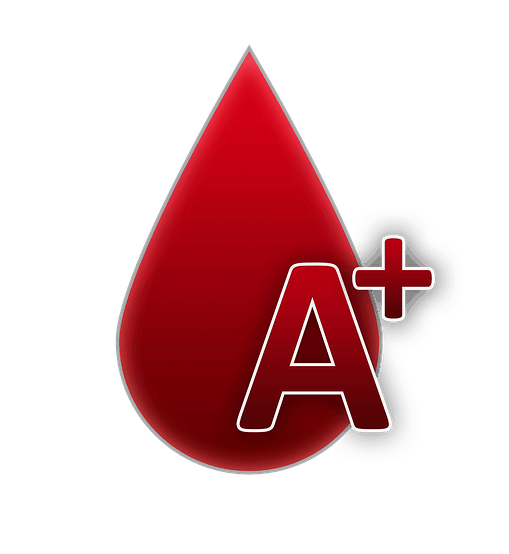
Distribution Among World Population: 27.42%
Can Donate T: A+ and AB+
Can Receive From: A+; A-; O+; and O-
Plasma Compatibility (Can Donate To): O and A
A+ blood is the second most common blood type just behind O+. About 27.42% of the world’s population has A+ blood, so donations from people with this blood type are always welcome so that the less common blood types can be saved for the those with rarer blood types and emergencies. While it is common, A+ blood can only be given to others with A+ or AB+ blood. Those with A+ blood can receive blood from Rh negative and positive A and O types.
B+
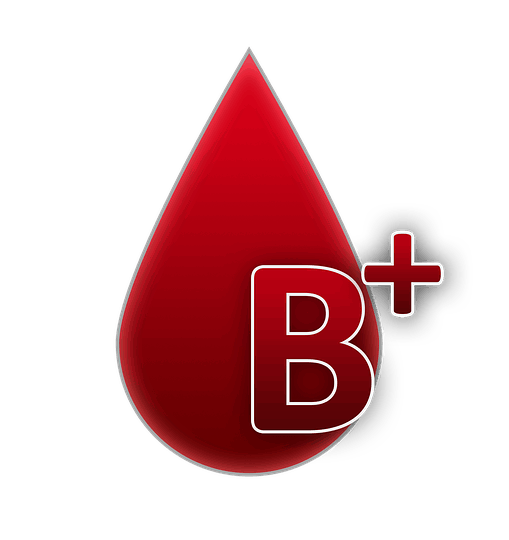
Distribution Among World Population: 22.02%
Can Donate T: B+ and AB+
Can Receive From: B+; B-; O+; and O-
Plasma Compatibility (Can Donate To): O and B
While B- blood is very rare, B+ blood is fairly common as over 22% of the world’s population has this blood type. B+ blood is more restrictive than B- blood and can only be given to others with B+ or AB+ blood. Patients with B+ blood can only receive blood from B and O, both negative and positive types.
AB+
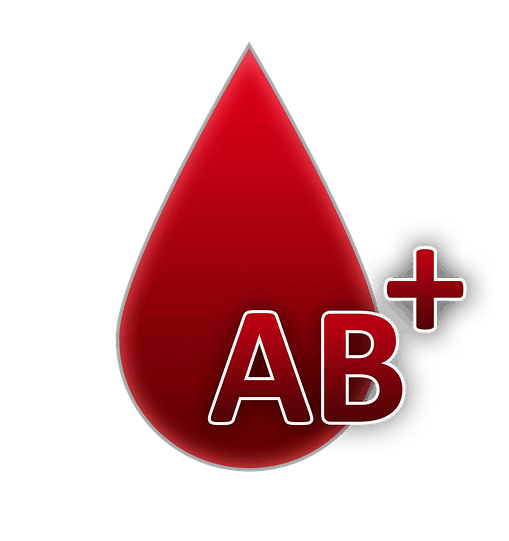
Distribution Among World Population: 5.88%
Can Donate T: AB+
Can Receive From: All blood types
Plasma Compatibility (Can Donate To): All blood types
On the opposite end of the O- blood’s universal donor status is AB+, which is the universal recipient. Since AB+ blood can only be donated to others with AB+ blood, but can receive from any blood type, AB+ blood donations are not in high demand. This is a relatively good thing since AB+ blood is fairly rare with less 6% of the world’s population having this type.
O-
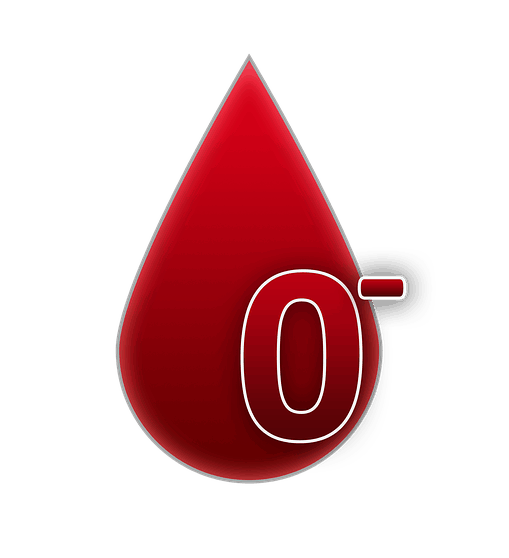
Distribution Among World Population: 2.55%
Can Donate T: All blood types
Can Receive From: O-
Plasma Compatibility (Can Donate To): O
As the “universal donor,” O- blood is perhaps the most valuable blood in the world as it can be given to nearly any blood type (except when the person has some rare antigen outside of the main ones). O- blood is used often in transfusions when the recipient’s blood type is unknown, like during trauma or emergency situations. Unfortunately, O- blood is pretty uncommon and because of how important the blood is, donors are in very high demand around the world. According to the American Red Cross, O- blood is the always the first to run out during a blood shortage due to its universality.
A-
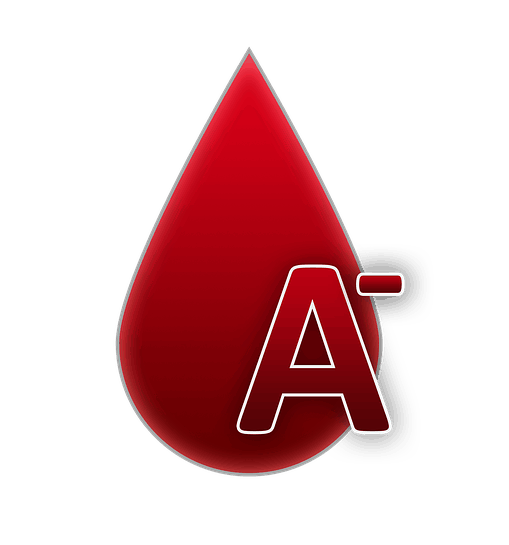
Distribution Among World Population: 1.99%
Can Donate T: A-; A+; AB-; and AB+
Can Receive From: A- and O-
Plasma Compatibility (Can Donate To): O and A
Of the A blood types, A- is much rarer than A+, which is actually pretty common. Less than 2% of the world’s population has A- blood. Similar to B- blood, A- blood can be donated to anyone with A or AB regardless of the positive or negative. On the other hand, those with A- blood can only get blood from A- and the universal donor O-.
B-
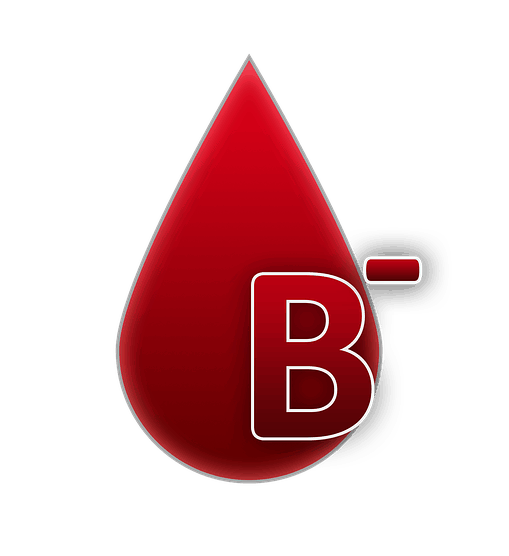
Distribution Among World Population: 1.11%
Can Donate T: B-; B+; AB-; and AB+
Can Receive From: B- and O-
Plasma Compatibility (Can Donate To): O and B
B- is also fairly rare among the world’s population, comprising only about 1.11% of the total population’s known blood types. Since B- blood lacks the A antibody in the red cells, it can only receive blood from B- and O- (the universal donor). Unlike B+ blood, B- blood can be given to both types of B and AB blood.
AB-
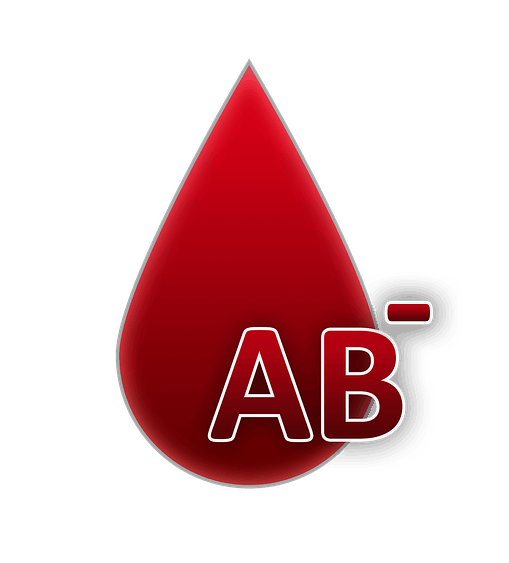
Distribution Among World Population: 0.36%
Can Donate T: AB- and AB+
Can Receive From: AB-; A-; B-; and O-
Plasma Compatibility (Can Donate To): All blood types
Of the eight basic blood types, AB- is the rarest with less than 1% (about 0.36%) of the world’s population sharing this type. While AB- can receive blood from all other Rh negative types, it can only donate to others with AB blood, both Rh negative and positive. AB- has both A and B antigens on its red cells which is why its compatible with all the other main Rh negative blood types.
Rh-null
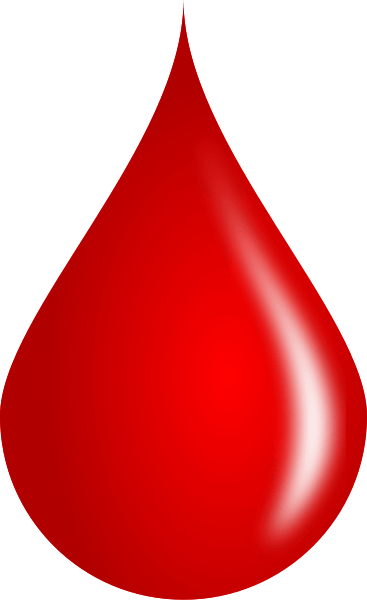
Distribution Among World Population: Fewer than 50 individuals
Can Donate T: Rh-null (can also be given to other unusual blood types)
Can Receive From: Rh-nul
Plasma Compatibility (Can Donate To): Unspecified
Rh-null aka “Golden Blood” is the rarest blood type in the world with fewer than 50 (43 to be exact) known cases ever reported. While there are only eight main/common blood types, there are an additional 61 possible antigens in the Rh system, which means that the eight main blood types can be subdivided into millions of different blood types. Rh-null occurs when a person’s blood lacks all of the 61 possible antigens. Because Rh-null lacks all of the possible antigens it can be donated to others who have highly unusual blood types outside of the main eight types. However, Rh-null can only accept blood from others with Rh-null. The scarcity of Rh-null blood coupled with its unique properties make it very valuable to scientific research, hence its “Golden Blood” reputation. Unfortunately, there is such a low number of people with Rh-null blood that it is used sparingly and they are encouraged to donate regularly so that the blood will be there for themselves should they need a blood transfusion.
This article originally appeared on Rarest.org.
More from Rarest.org
1941 Lincoln Penny Value Guide
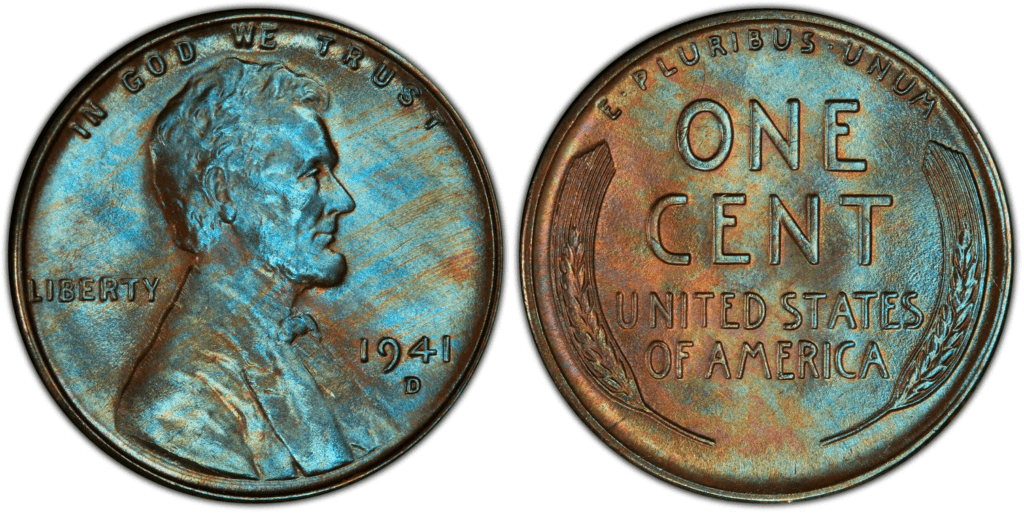
As the US entered World War II in 1941, copper and tin, both used in the coin, were in short supply. So the cents produced in 1943 were made out of zinc-coated steel. These coins were known as the “war-time” cents. Read More
8 Rarest Genetic Disorders In The World
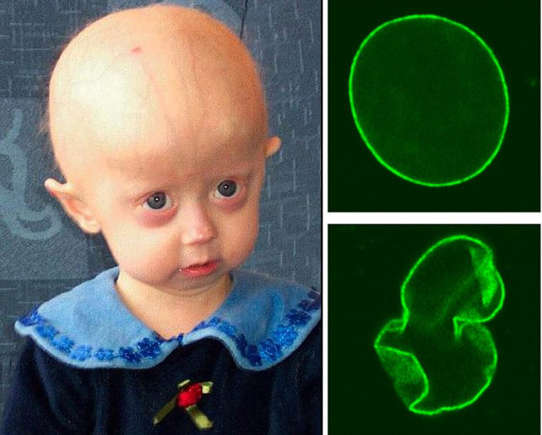
Genetic disorders are conditions caused by abnormalities in an individual’s DNA. While some disorders are relatively common, affecting thousands or even millions of people worldwide, others are incredibly rare, with only a handful of cases ever reported. Read More
10 Most Expensive Restaurants in Pittsburgh

Discover Pittsburgh’s culinary scene through its most esteemed and luxurious dining establishments. From elegant settings to innovative cuisine, these restaurants offer an unparalleled gastronomic experience that caters to discerning palates and those seeking an unforgettable dining affair. Read More
